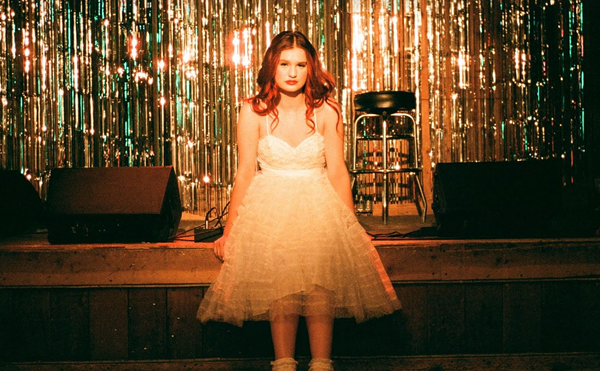The Stone Roses was birthed in a unique time and place, often called the “Madchester scene,” where post-punk rock nuzzled up to dance music in an Ecstasy-fueled wash of euphoria. While the album does make some concessions to the dancefloor in the form of thudding 4/4 drum-machine grooves on a few songs, it falls far more decidedly into the rock realm. (In fact, the band did not include a keyboardist.)
My take on The Stone Roses, experienced for the first time two decades on, is that it’s an impeccable power-pop disc colored by a gauzy psychedelia and emphatic nods to the British Invasion sounds of the 1960s. And so while it was a product of a brief musical and cultural mini-movement, it thoroughly stands the test of time.
Frontman Ian Brown’s breathy and ethereal tenor refrains from outward shows of emotion; his laconic (stoned?) delivery – not to mention his lush layering of harmonies -- serves to focus attention on the melodies. Would a more passionate vocal approach helped or hindered the music? Hard to say, but Brown’s almost offhand delivery does occasionally lapse into sonic wallpaper.
The album’s MVP is guitarist John Squire, who co-wrote the tunes with Brown. There’s not a scintilla of punk amateurishness in his playing; he masterfully creates six-string soundscapes that range from ringing atmospherics to biting blues licks to eloquent solos. On “Waterfall,” his symphonic arpeggios set up an instrumental coda with Pete Townshend-esque chord flourishes, brooding runs and a swelling rhythm lick. That gives way to the five-minute “Don’t Stop,” which backmasks guitar parts from “Waterfall” into a hypnotic, Hendrixian head-trip, dappled by spacey vocals.
The Stone Roses would end up being the band’s only triumph. After an extended spell of record label contretemps, the Roses put out the unfocused and poorly received Second Coming in 1994, and broke up not long after. One can lament the squandered potential of a terrific band – or revel in a singular artistic achievement like The Stone Roses. I choose the latter.
… A few words about the "Legacy Edition." It includes the remastered album, a second CD of “Lost Demos,” and a DVD that includes a 1989 live set from Blackpool Empress Ballroom (underscoring Squire’s subtle brilliance and Brown’s vocal shortcomings) and several video clips.
[image-1]



















